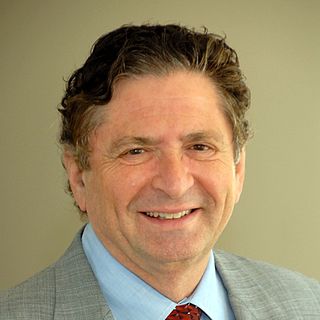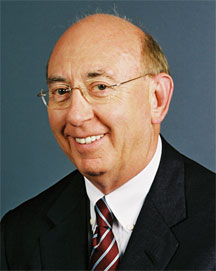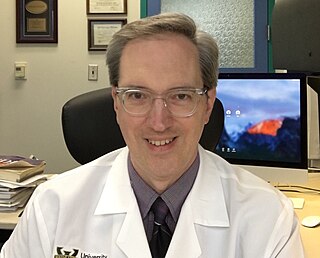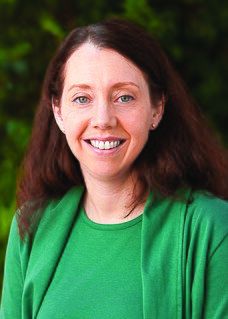Related Research Articles
A radiation oncologist is a specialist physician who uses ionizing radiation in the treatment of cancer. Radiation oncology is one of the three primary specialties, the other two being surgical and medical oncology, involved in the treatment of cancer. Radiation can be given as a curative modality, either alone or in combination with surgery and/or chemotherapy. It may also be used palliatively, to relieve symptoms in patients with incurable cancers. A radiation oncologist may also use radiation to treat some benign diseases, including benign tumors. In some countries, radiotherapy and chemotherapy are controlled by a single oncologist who is a "clinical oncologist". Radiation oncologists work closely with other physicians such as surgical oncologists, interventional radiologists, internal medicine subspecialists, and medical oncologists, as well as medical physicists and technicians as part of the multi-disciplinary cancer team. Radiation oncologists undergo four years of oncology-specific training whereas oncologists who deliver chemotherapy have two years of additional training in cancer care during fellowship after internal medicine residency in the United States.

Vincent Theodore DeVita Jr. is the Amy and Joseph Perella Professor of Medicine at Yale Cancer Center, and a Professor of Epidemiology and Public Health. He directed the Yale Cancer Center from 1993 to 2003. He has been president of the American Cancer Society (2012-2013). He is internationally recognized as a pioneer in the field of oncology for his work on combination-chemotherapy treatments.
Nicholas J. Vogelzang is a medical oncologist with Comprehensive Cancer Centers of Nevada (CCCN). He serves as Medical Director of the Research Executive Committee and Associate Chair of the Developmental Therapeutics and Genitourinary Committees for US Oncology Research. His research interests include clinical trials for genitourinary malignancies and mesothelioma.
M. Krishnan Nair was an Indian oncologist. He was the founding director of the Regional Cancer Centre, Thiruvananthapuram, a director of the S.U.T. Institute of Oncology, and Trivandrum Cancer Center(TCC), part of SUT Royal Hospital in Thiruvananthapuram (Trivandrum) and a professor at the Amrita Institute of Medical Sciences & Research in Kochi. The Government of India awarded him the fourth highest civilian award of the Padma Shri, in 2001 for his contributions in the cancer care field.
James Lewis Abbruzzese is the Chief of the Duke Division of Medical Oncology and Associate Director for Clinical Research for the Duke Cancer Institute. Previously, Abbruzzese was Chairman of the Department of Gastrointestinal Medical Oncology at the University of Texas M. D. Anderson Cancer Center where he held the M. G. and Lillie A. Johnson Chair for Cancer Treatment and Research and the Annie Laurie Howard Research Distinguished Professorship. Abbruzzese is one of the world's leaders in the clinical study and treatment of pancreatic cancer.

Ivor Royston, M.D., is an oncologist, researcher, scientist, entrepreneur and venture capitalist, recognized for his efforts to develop treatments for multiple disease targets and to fund biotechnology companies with promising science, technology or medicines. He speaks regularly at healthcare conferences and symposia throughout the United States, Europe and Asia.
The American Society of Clinical Oncology (ASCO) is a professional organization representing physicians of all oncology sub-specialties who care for people with cancer. Founded in 1964 by Fred Ansfield, Harry Bisel, Herman Freckman, Arnoldus Goudsmit, Robert Talley, William Wilson, and Jane C. Wright, it has nearly 45,000 members worldwide.
Dennis Joseph Slamon, is an American oncologist and chief of the division of Hematology-Oncology at UCLA. He is best known for his work identifying the HER2/neu oncogene that is amplified in 25-33% of breast cancer patients and the resulting treatment trastuzumab.
Ronald Levy is an American medical doctor and scientist at Stanford University. He specializes in lymphoma, including non-Hodgkin lymphoma, Burkitt's lymphoma and Hodgkin's disease. His research investigates how the immune system can be harnessed to fight lymphoma. His work has led to the concept that antibodies can be used as personalized anticancer drugs and to the development of an antibody-based drug, Rituxan, that is widely used to treat lymphoma.
The JCO Oncology Practice is a monthly peer-reviewed medical journal covering the mechanics of oncology care. It was established in 2005 and is published by the American Society of Clinical Oncology. The editor-in-chief is John V. Cox. The editor-in-chief Designate is Jeffrey Peppercorn.

John E. Niederhuber, MD was the 13th director of the National Cancer Institute (NCI), from 2006 until July, 2010, succeeding Andrew von Eschenbach, who went on to become a director at biotechnology firm BioTime. A nationally renowned surgeon and researcher, Dr. Niederhuber has dedicated his four-decade career to the treatment and study of cancer - as a professor, cancer center director, National Cancer Advisory Board chair, external advisor to the NCI, grant reviewer, and laboratory investigator supported by NCI and the National Institutes of Health. He is now Executive Vice President/CEO Inova Translational Medicine Institute and Inova Health System and co-director, Johns Hopkins Clinical Research Network.
Gerold Bepler is the president and chief executive officer of the Barbara Ann Karmanos Cancer Institute in Detroit, Michigan.
Carlos A. Pérez is an American radiation oncologist. He is well known for his contributions to the clinical management of patients, especially those with gynecologic tumors and carcinoma of the prostate, the breast and head and neck.
Gregory Bruce Mann is a surgical oncologist and Director of Breast Cancer Services at the Royal Women's Hospital in Melbourne, Australia, the largest specialist women's care hospital in Australia. A former president of COSA, Dr. Mann served previously as Director of Cancer Services and Infectious Medicine for the Melbourne Health Cancer Service, as Director of the award-winning Melbourne Health Combined Breast Service and is Director of Advanced Surgical Training at the Royal Melbourne Hospital. The Combined Breast Service won the prestigious Premier's Award for "Excellence for improving cancer care in Victoria" under Mann's direction in 2008.

David Henry Gorski is an American surgical oncologist, professor of surgery at Wayne State University School of Medicine, and a surgical oncologist at the Barbara Ann Karmanos Cancer Institute, specializing in breast cancer surgery. He is an outspoken skeptic, and a critic of alternative medicine and the anti-vaccination movement. He is the author of the blog Respectful Insolence, and the managing editor of the website Science-Based Medicine.
Walter "Wally" J. Curran, Jr. is an American radiation oncologist specializing in the treatment of malignant brain tumors and locally advanced lung cancer. He is the global chief medical officer of GenesisCare, a provider of cancer and cardiovascular care that serves communities in 440 locations across the world.
Scott M. Lippman is the director of Moores Cancer Center at the University of California, San Diego and Professor of Medicine at UC San Diego School of Medicine.
Maha H. Hussain is the Genevieve E. Teuton Professor of Medicine and deputy director of the Lurie Comprehensive Cancer Center at Northwestern University's Feinberg School of Medicine. She is an oncologist focusing on genitourinary cancers.

Pamela Lyn Kunz is an American oncologist. She is the leader of the Gastrointestinal Cancers Program at Yale Cancer Center and Smilow Cancer Hospital and director of GI Medical Oncology within the Section of Medical Oncology. She was formerly the director of the Stanford Neuroendocrine Tumor Program before leaving, in part due to gender harassment.

Allison Walsh Kurian is an American medical oncologist. She is a Professor of Medicine and Epidemiology & Population Health at Stanford University and an oncologist at the Stanford Cancer Institute.
References
- 1 2 "Internal Medicine: Faculty Biography". Archived from the original on 2010-06-09. Retrieved 2010-05-05.
- 1 2 Douglas Blayney – LinkedIn
- ↑ Douglas W. Blayney, M.D. named Medical Director
- ↑ "Wilshire Oncology Medical Group, Inc". Archived from the original on 2010-03-05. Retrieved 2010-05-05.
- ↑ "Douglas W. Blayney".